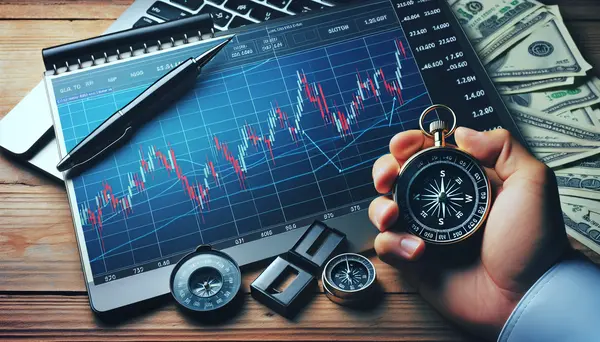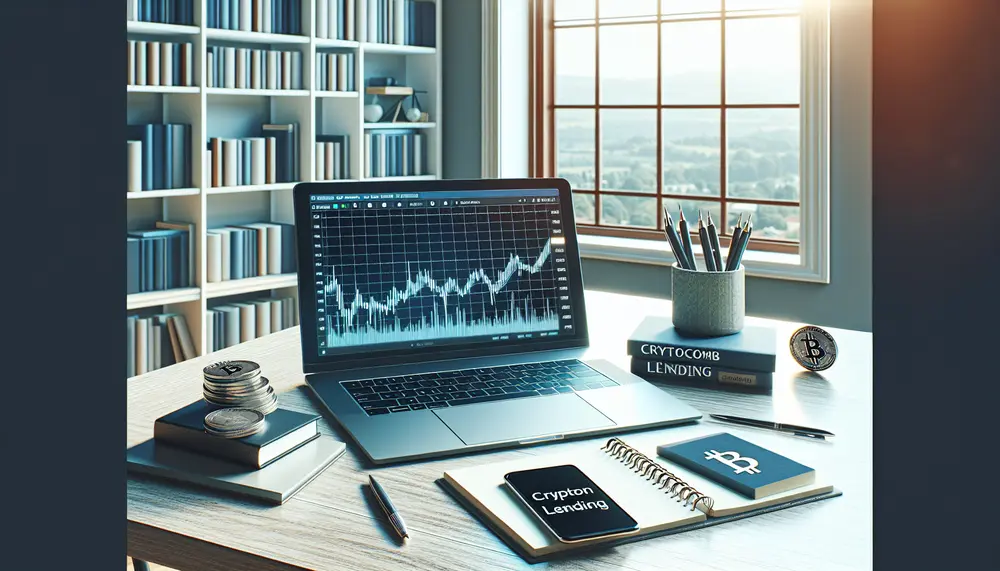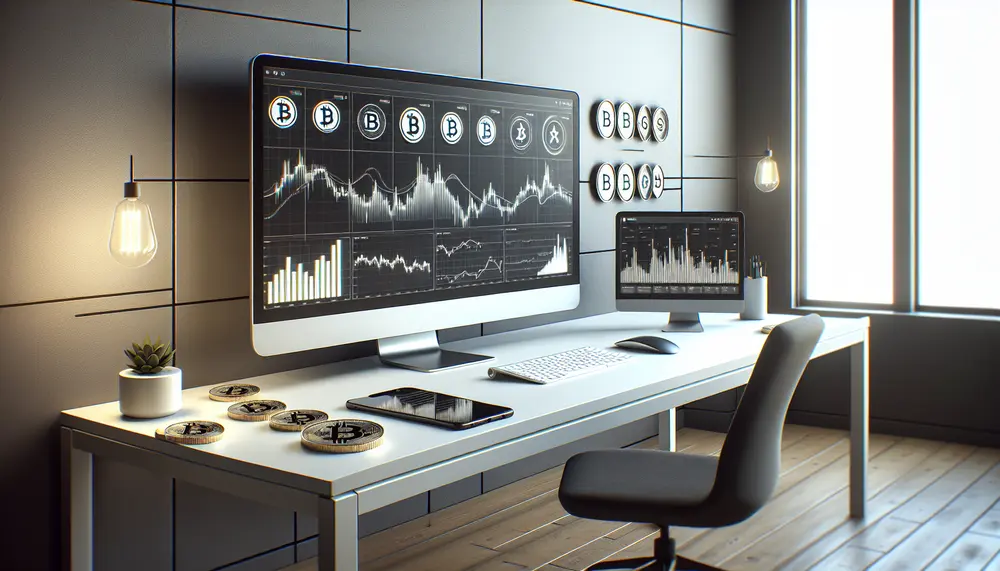Market Volatility
Market Volatility
Understanding Market Volatility
The term Market Volatility refers to the rate at which the price of an asset, such as a stock or currency, increases or decreases for a set of returns. Volatility is often measured by the standard deviation, providing traders an idea of how much an asset's price swings.
How Does Market Volatility Affect Trading?
In trading, Market Volatility plays a significant role. It is a crucial factor that traders consider when making trading decisions. High market volatility often equals potential trading opportunities as asset prices move dramatically in short periods.
On the contrary, during periods of low Market Volatility, asset prices are relatively stable, reducing the opportunity for quick profits. However, low volatility can be a preferable environment for traders who prefer steady climb or decline in prices rather than erratic jumps.
How to Measure Market Volatility?
The most common measure of Market Volatility is using the Volatility Index or VIX, also known as the 'Fear Index.' The VIX reflects trader’s predictions for future volatility, offering insight into how chaotic or calm the market may be in the coming days.
Navigating Through Market Volatility
Trading in volatile markets can be risky, but understanding and monitoring Market Volatility can help traders manage the risks involved. By implementing strategies such as stop-loss orders and diversifying portfolios, traders can protect their investments during highly volatile periods.
Furthermore, some traders may opt to use derivative products like options to hedge against particularly high volatility scenarios, minimizing potential losses and securing unpredicted profits.
In summary, Market Volatility is a key concept in trading. Embracing it instead of fearing it may lead to successful and profitable trading strategies.
Blog Posts with the term: Market Volatility

Trading psychology is the emotions, attitudes and beliefs that influence trading decisions, and involves developing a greater self-awareness, discipline and patience to stay disciplined and motivated in the face of market volatility....

Regularly reviewing and adjusting the strategy can also help to stay ahead of the volatility of the cryptocurrency markets. Cost Average Trading is a popular strategy used by investors to gradually buy securities at different times and different prices in order...

Losses are inevitable parts of trading, but successful traders are able to handle them by accepting them, sticking to their trading plan, learning from them, and staying positive and focused. These strategies can help turn losses into opportunities for growth...

Trading bots may seem like a viable way to automate trades and increase profits, however they have many limitations and potential risks which should be considered before using one. Alternatives to trading bots such as copy trading services and robo-advisers...

The article discusses the importance of the trader's mindset in crypto trading and explores various psychological barriers that traders may face. It emphasizes the need for emotional control, discipline, patience, and rational decision-making to overcome these barriers and achieve success...

DeFi trading strategies involve leveraging smart contracts for activities like lending, borrowing, and trading without intermediaries, with popular methods including arbitrage, yield farming, staking, market making, and flash loans. These strategies offer advantages such as accessibility, transparency, lower costs, control...

Bitfinex is a sophisticated cryptocurrency trading platform offering advanced tools and features for professional traders, including margin trading, derivatives, lending markets, and high liquidity. The guide provides an in-depth look at Bitfinex's functionalities such as customizable interfaces, diverse order types,...

The article discusses the importance of implementing a stop loss strategy in cryptocurrency trading to protect investments from substantial losses. It explains the concept of a stop loss in crypto trading, the advantages and disadvantages of using it, and the...

Market sentiment analysis is a method used by traders and investors to measure the overall mood of a market, including the cryptocurrency market, in order to make informed trading decisions. It involves analyzing large volumes of data from various sources,...

This article provides an introduction to trading psychology, emphasizing the importance of understanding and managing emotions in successful trading. It discusses the impact of emotions such as fear, greed, and confidence on trading decisions and offers strategies for recognizing and...

Decentralized Finance (DeFi) trading platforms enable users to trade cryptocurrencies directly without centralized exchanges, offering enhanced security and control. When choosing a DeFi platform, consider factors like security measures, user interface, token availability, fees, liquidity, community support, wallet integration, and...

Crypto.com Lending is a service that allows cryptocurrency holders to lend their assets and earn interest, providing benefits such as passive income and portfolio diversification. The platform ensures security through blockchain technology, offers flexible lending terms, competitive rates, and includes...

Changelly is a user-friendly crypto exchange platform that offers instant and fixed-rate exchanges, catering to both beginners and experienced traders with over 160 cryptocurrencies. It provides non-custodial services for enhanced security, an easy verification process, integration tools like API and...

Contrarian traders who went against the prevailing market sentiment in the dot-com bubble and the housing market in 2008 were able to profit from the subsequent downturn. Contrarian trading has the potential to take advantage of market inefficiencies caused by...

DeFi trading leverages blockchain technology and smart contracts to enable peer-to-peer asset trading on decentralized exchanges (DEXs) without intermediaries, offering benefits like lower fees, enhanced security, transparency, and greater accessibility. Key technologies in DeFi include blockchains such as Ethereum, smart...

